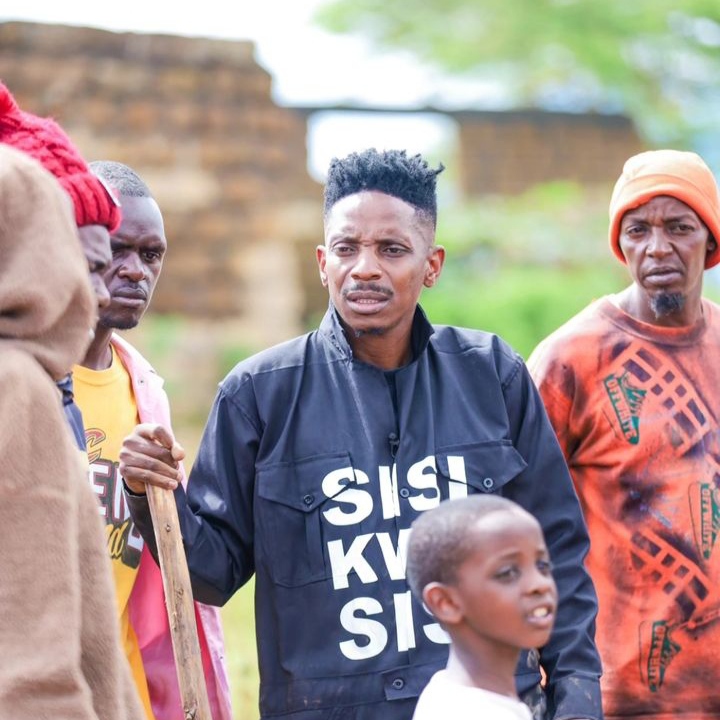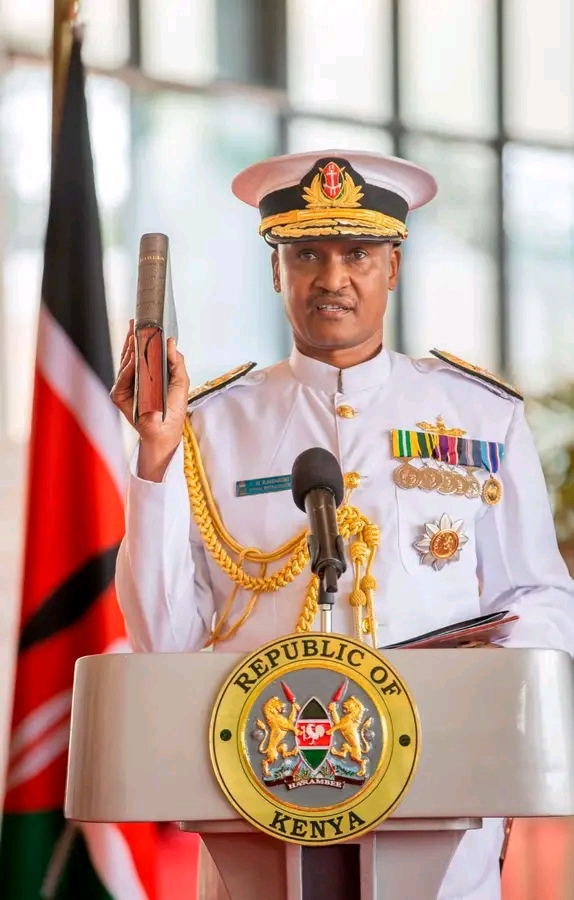Recently, a bunch of men calling themselves Kalenjin and Kikuyu elders from the greater Rift Valley region converged for a meeting whose agenda was to castigate President Uhuru Kenyatta for “betraying” Deputy President William Ruto. They warned that the president would lose the support and respect of all Kalenjins and Kikuyus in the populous area if he dared betray Mr Ruto’s aspirations to ascend to the presidency in 2022.
The meeting caused me to wonder if the supposed elders understood why the president was showing strong signs of abandoning his deputy. I am not a tribalist; neither do I subscribe to tribal chauvinism. For this reason, I do not believe that the legions of problems bedevilling our country can only and should only be addressed by certain specific individuals or so-called tribal chiefs. My belief and understanding is that our issues can only be resolved if we get the right kind of leaders – men and women of virtue who care less about being served and more about serving without fear or favour. Such leaders are not the preserve of a single or a few tribes or ethnic groupings but are found among different and various tribal groups, no matter how rare they may be.
As a nation (although some observers have repeatedly said we are more a country than a nation), we must collectively agree that we are lagging behind in a number of development issues. The more than 50 years that we have existed as an independent, sovereign nation have largely been wasted because of wrong choices made concerning leadership.
Some writers have said civil society has turned into evil society in our country and I couldn’t agree with them more. It is a sad reality that the good and the bad are almost indistinguishable. The numerous people in leadership today portray and portend emptiness, viciousness and self-centredness. In an almost carefree manner, they routinely make a mockery of the aspirations of the people who vote them into these positions. Unfortunately, even those who are rewarded with positions because of their perceived civility and understanding of their people’s suffering quickly turn into hyenas upon assuming office.
Lopsided, myopic and shallow ethnic considerations as well as blind party affiliations remain ugly traits of leadership that contemptuously assault the very tenets of our democracy. The result is that our democracy is characterised by ignorance, intellectual lameness and emotional misplacement.
At election time, as happened in 2007, 2013 and 2017, the atmosphere becomes heavily charged with political vitriol that comes from a false belief that our political opponents are our greatest enemies. In actual sense – as it turns out repeatedly and predictably – the real enemies are not our political opponents but the very leaders we vote for so obsessively and compulsively. These leaders, most of whom we defend fervently, conveniently promise heaven before elections but robustly deliver hell upon assuming office.
This cycle of political violence is usually fomented and fermented by ignorant, blind and hate-laden self-seekers who believe they are the bona fide owners of this nation, and they ride on their overbearing sense of entitlement to enjoy life while enslaving others. To this end, they are ready and willing to maim and even kill with wanton abandon. Is this the Kenya we want?
Surprisingly, when the war ends and the war-mongers sober up, they realise painfully that whatever they were fighting for is really not theirs, neither does it benefit them. Sometimes they regret to find that the neighbour they mercilessly molested and called names is the one who actually provides them with their daily needs through trade. Meanwhile, the high-ranking political wannabes for whom they fought have disappeared to unknown and unreachable destinations, only to return on the eve of the next election.
Having analysed and understood the character of our political leaders, I have every reason to conclude that none of them is worth fighting for, losing a limb for, or dying for.
That the Luo, Kamba and Luhya communities voted overwhelmingly for Raila Odinga and Kalonzo Musyoka in 2017, while the Kalenjins and Kikuyus did the same for the ‘UhuRuto’ duo was not because they fully understood the politicians’ character traits. Their voting was largely influenced and informed by burning emotions without the necessary intellectual curiosity required to examine the contents of the hearts and souls of these political giants. That is why so many voters falsely believed that these leaders were the only answer to their own political aspirations.
Although we are currently in the ‘handshake mood’ where unity for the sake of nation-building reigns supreme (with the seemingly sudden discovery that we are really one people rather than sworn enemies), it is important to remember the recent past to pick a few important lessons.
The hue and cry from Jubilee supporters following the famous handshake was informed by their perception that the Jubilee government belongs to or must only belong to and favour those who voted for UhuRuto. Inherently intertwined with this perception is the belief that those who voted for Mr Odinga deserve to be punished and should not therefore be given any favours or be appointed to any positions even if they are qualified. This is reflective of our political nature and the reason competition for the presidency has been turned into a matter of life and death. It is also why many Jubilee supporters affiliated to the deputy president have been on the warpath against the president.
My question is; what is so wrong with Raila being close to the president if he can bring peace to the president unlike the DP, who appears to be in permanent campaign mode? Must Raila know only suffering his entire life? Is he the only one who must be in the opposition, or who must be permanently confined to the corner of gnashing of teeth? For humanity’s sake, let us allow the son of Jaramogi to enjoy a little sense of political belonging. He may not be a political angel, but he has suffered enough, not to mention his advanced age that calls for utmost respect.
The old saying that “leaders are as good as the people who vote them into office” proves that the onus of mediocre leadership lies squarely on the shoulders of the electorate. Let us learn to carry our collective cross of political mediocrity in peace if we cannot see the obvious and avoid it in good time. Instead of challenging or threatening the president because of perceived political betrayal, it is incumbent upon those who feel offended to seek and understand the president’s vision. It may well be that Uhuru Kenyatta is a political giraffe capable of seeing much further while seated than a tortoise can see while perched atop a tree.
In any case, betrayal is the spice of politics; without it politics would be tasteless. Kenya’s political landscape is littered with betrayed souls – there are those who once referred to their political masters as gods and goddesses only for them to be cast into political oblivion by those same masters. The electorate continues to be held captive by elected leaders who spew endless promises without any intention to fulfill even one. One may therefore ask naively: Which is a worse form of betrayal – that of a single individual or of an entire generation/nation? If Ruto really wants to be president, let him prove his true worth to the citizens.
The writer is a medical doctor.
Email: qoluoch98@yahoo.com





